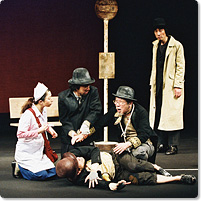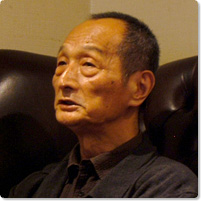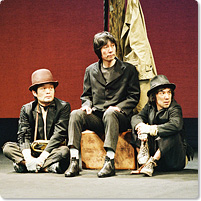
“Kiyama Theater Productions” production
Yattekita Godot
(Godot Has Come)
Written by Minoru BetsuyakuDirected by Toshifumi Sueki
(Mar. 24-31, 2007 at Haiyuza Theater) Photo: Teruo Tsuruta
Data
:
Premiere: 2007
Length: 1 hr. 40 min.
Acts, scenes: One act, 2 scenes
Cast: 10 (6 man, 4 woman)



